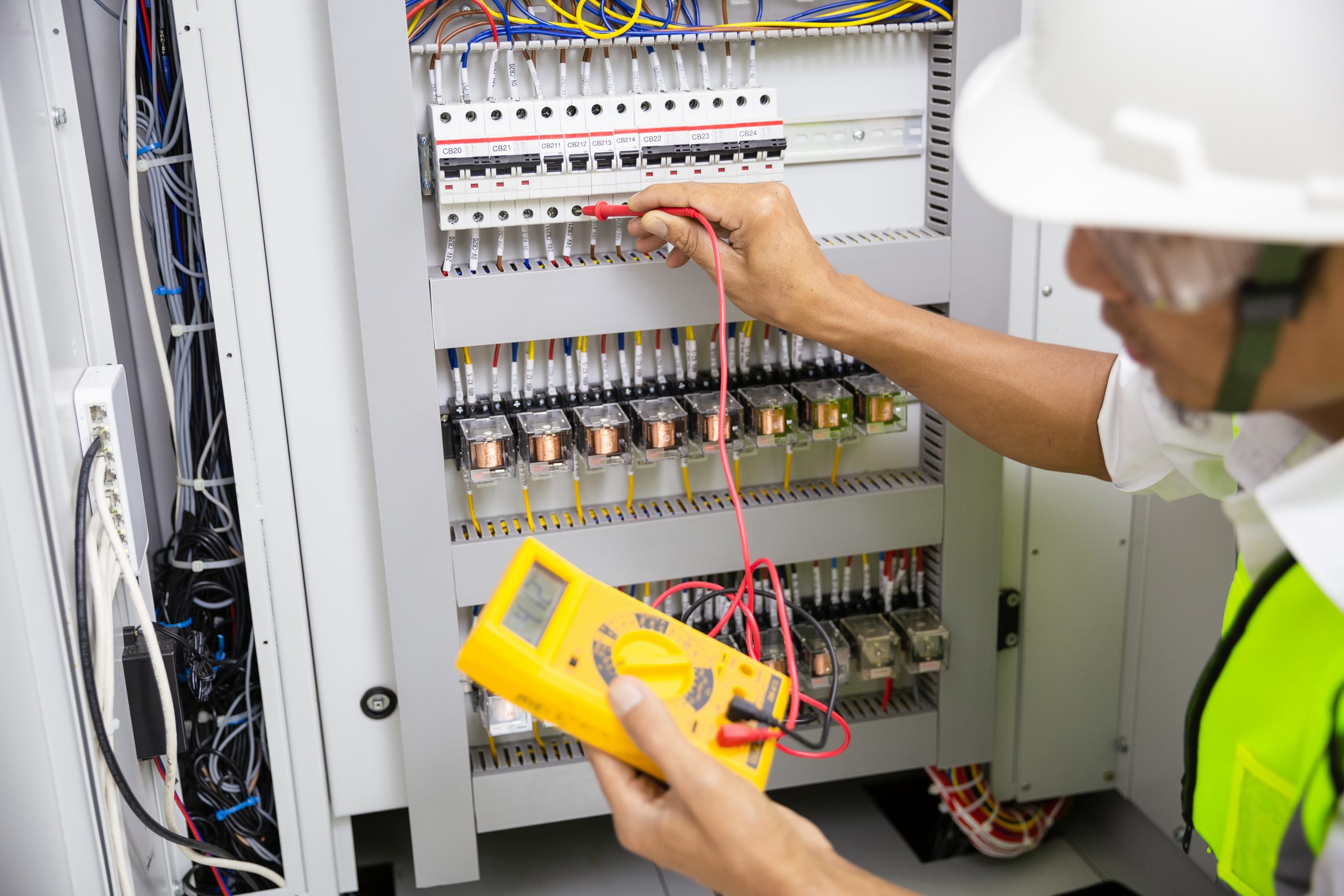Circuit breakers are an important part of the electrical system in a home because they protect against overloads and short circuits. They are made up of a switch, a trip unit, and a part that detects an arc fault. One of the main jobs of a circuit breaker is to protect against overcurrent, which happens when there is too much flow of electricity in a circuit. When an overcurrent is noticed, the trip unit in the circuit breaker turns on the switch. This keeps the circuit and devices connected to it from getting damaged. Circuit breakers come in different grades, such as those for current and for stopping.
Circuit breakers are made to protect against short circuits and too much power. The current grade of a circuit breaker is the most current it can safely handle without breaking. The interrupting grade says how much fault current a circuit breaker can safely stop without being damaged. There are different kinds of circuit breakers, such as Standard Circuit Breakers, Ground Fault Circuit Interrupters (GFCIs), and Arc Fault Circuit Interrupters (AFCIs). When a fault or overload happens, the trip unit inside the circuit breaker notices the problem and starts the process that causes the circuit breaker to trip.
This process can be set off in two different ways: thermally and magnetically. To reset a circuit breaker, you need to find the one that tripped, push the switch to the OFF position until you hear a click, and then move the switch back to the ON position. If a circuit breaker keeps tripping, it could be a sign of a bigger problem that needs to be looked at and fixed by a professional. Circuit breakers help keep your home’s electrical system safe and effective by protecting against overcurrents, short circuits, and other electrical dangers. Overloads, short circuits, or bad wiring can cause tripping, so it’s important to figure out why the tripping is happening and fix it.
Circuit breakers should only be changed by a trained plumber, and they are a key part of keeping electrical fires from happening. Circuit breakers come in different types and grades so that they can be used in different electrical systems and for different purposes. Ground fault circuit interrupters (GFCIs) must be put in place with water to keep people from getting electric shocks. At least once every few years, you should have a trained plumber check and test your circuit breakers. Circuit breakers are needed to protect the electrical system from overloads and short circuits, which can be dangerous.
They work like buttons that stop the flow of electricity in a circuit if there is a problem or too much electricity. They have three main parts: a switch, a trip unit, and a part that can identify an arc fault. When there is too much flow of electricity in a circuit, the trip unit protects against overcurrent. Circuit breakers can be rated for both how much power they can handle and how often they can be turned off. Understanding how circuit breakers work is important for keeping an electrical system safe and running well and avoiding problems like electrical fires.
Circuit breakers are important because they keep circuits from getting too hot or shorting out. The current number says how much power a circuit breaker can safely handle before it trips. The interrupting grade shows how much of a fault current a circuit breaker can safely stop without being damaged. There are different kinds of circuit breakers, such as Standard Circuit Breakers, Ground Fault Circuit Interrupters (GFCIs), and Arc Fault Circuit Interrupters (AFCIs). When a fault or overload happens, the trip unit inside the circuit breaker notices the problem and starts the process that causes the circuit breaker to trip.
The process that trips works in two different ways: thermally and magnetically. To reset a circuit breaker, find the one that tripped, push the switch hard to the OFF position, and then move the switch back to the ON position. If a circuit breaker keeps tripping, it could be a sign of a bigger problem that needs to be looked at and fixed by a professional. Circuit breakers are important devices that protect against overcurrents, short circuits, and bad wiring. They trip to protect the circuit and stop electrical dangers, but overloads, short circuits, or bad wiring can also cause them to trip.
For replacing circuit breakers, it’s best to hire an electrician who knows what they’re doing. Circuit breakers are an important part of keeping electrical fires from happening, but they come in different types and grades to fit different electrical systems and uses. Ground fault circuit interrupters (GFCIs) must be put in place with water to keep people from getting electric shocks. At least once every few years, you should have a trained plumber check and test your circuit breakers.

